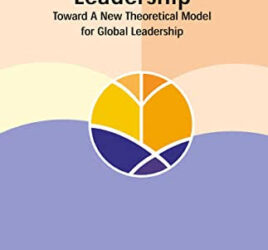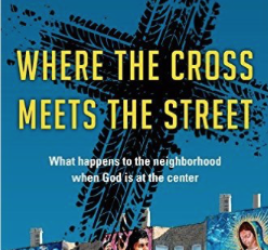In Transforming Society, author Melba Padilla Maggay of the Institute for Studies in Asian Church and Culture, The Philippines, shares with her readers “perspectives, and lessons learned out of hard-won struggle” (1996). Quoting an Indian preacher, she views her writing as “one beggar telling another beggar where to find bread,” in this case food for thought to encourage fellow travelers in search of “liberation and social justice and righteousness”. This bread, as it turns out, is neither stale nor light. Baked in years of labor and self-sacrifice for the benefit of the marginalized, Maggay serves a hardy, yet thin, loaf of theology of and practical insight into the world of social justice.
Maggay challenges the status quo at many levels. In her opening chapter, she takes head-on the mindset that more saved people will automatically mean that society will be changed. However, in the Philippines (and numerous other nations) it has proven that the growth of ‘born-again’ Christians does not mean greater justice for the nation. “Evangelism is not a cure-all,” states Maggay, “and cannot substitute for concrete redemptive action in our political and social life” (1996). The reverse is true, also, that social action does not replace the proclamation of the Gospel.
Secondly, Maggay unravels the false dichotomy between sacred and secular. “Kingdom is a political term,” she says, “and Jesus’ messiahship was understood by himself and by his hearers as having to do with more than just the ‘soul'” (1996). Proclamation and the aspect of presence through social action go hand in hand, together forming the ‘Kingdom Witness’ of the Gospel.
Not claiming to be a theologian, Maggay digs deep into Scripture to strike a balance between to roles of the church and the state. “The church has no need to play politics in order to wield influence,” writes Maggay. “Simply by itself, by being true to the power of its convictions and the purity of its purpose, it has power” (1996). This does not mean disengagement from politics. Referencing a Reformed thinker, Maggay quotes, “Christian political life is not the accepted political life of the time being accomplished by Christian individuals; it is doing the will of God as revealed in Holy Scriptures in the political sphere of human society” (1996). Taking the three roles of Christ, that of Prophet, Priest and King, Maggay reflects of the role of the church in society through each of these offices.
It is part three, “Kingdomkeeping: struggles, strategies, disciplines,” that touched me at a more personal level. Sharing from her personal experience during the 1986 people movement in the Philippines, my heart resonated with struggles of long-term ministry. “Social transformation requires a long obedience,” says Maggay, sometimes resulting in the “loneliness of the long-distance runner” (1996). In Jeremiah 12:5, The Lord admonishes the prophet, “If you have raced with men on foot and they have worn you out, how can you compete with horses?” (NIV). The powers and principalities of the prince of this world, as well as our own broken sinful nature, are behind all that is unjust and corrupt. “We need to be able to make strategic choices,” encourages Maggay, “advancing the possible good even as we seek the impossible best” (1996). After all, Ezekiel’s valley of dry bones coming to life and the resurrection of Christ himself give us hope that even the dead can rise!
“The world is still good, it is our Father’s world and the Son bought it back at such costly price to himself” (1996). The ruler of this world has been defeated at the cross and the kingdoms of this world will make way for the Kingdom Eternal. Therefore, I will press on and continue to prepare the way for The Lord until He returns.
By Jacob Bloemberg




